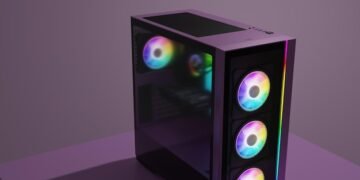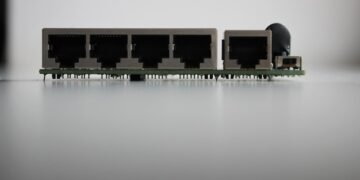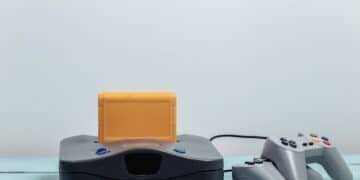Maximize Your PC’s Lifespan: Essential Maintenance Tips for 2025

Maximize your PC’s lifespan in 2025 by implementing essential maintenance tips, including regular cleaning, software updates, hardware monitoring, and preventative measures against malware and overheating.
Want to keep your PC running smoothly for years to come? The key lies in proactive care. Discover how to maximize your PC’s lifespan: essential maintenance tips for 2025 that will keep your computer in optimal condition.
Understanding PC Lifespan and Its Influencing Factors
The lifespan of a PC isn’t set in stone; it’s influenced by a combination of factors. Understanding these can empower you to make informed decisions about how you use and maintain your machine.
Components and Their Expected Lifespans
Different PC components have varying lifespans. Knowing this helps you anticipate and plan for replacements.
- Hard Drives (HDD/SSD): HDDs typically last 3-5 years, while SSDs can last longer depending on usage.
- RAM: RAM modules are generally durable and can last for many years if not damaged.
- CPU: A CPU can last a decade or more with proper cooling and care.
- GPU: Graphics cards usually have a lifespan of 3-5 years, especially with heavy gaming or video editing.
Environmental Factors Affecting PC Health
The environment where you use your PC can significantly impact its health and longevity.
Dust accumulation, temperature fluctuations, and humidity are major culprits. Regular cleaning and maintaining a stable environment are crucial.
Power surges can also damage components. Invest in a good surge protector to safeguard your hardware.
Understanding the interplay between hardware components and environmental factors allows for proactive maintenance, ultimately extending the life of your PC.
Regular Cleaning: Physical and Digital Hygiene
Keeping your PC clean, both inside and out, is crucial for optimal performance and longevity. Neglecting this aspect can lead to overheating and reduced efficiency.

Cleaning Physical Components
Dust buildup can cause overheating and reduced performance. Regular cleaning is essential.
- Use Compressed Air: Blow out dust from fans, heat sinks, and vents.
- Clean Connectors: Use a soft brush to remove dust from ports and connectors.
- Proper Ventilation: Ensure your PC has adequate ventilation to prevent overheating.
Disk Cleanup and Defragmentation
Digital clutter can slow down your PC. Regular disk cleanup and defragmentation can help.
Disk Cleanup removes temporary files, system caches, and other unnecessary data. This process frees up valuable space and improves your PC’s efficiency.
Defragmentation reorganizes files on your hard drive, making it easier and faster for your PC to access them. This is especially useful for HDDs.
By practicing both physical and digital hygiene, you’ll ensure your PC remains efficient and reliable for years to come.
Software Updates and Security Measures
Keeping your software up-to-date and securing your system against threats are paramount for maintaining a healthy PC. Neglecting these aspects can lead to vulnerabilities and performance issues.
Importance of Operating System Updates
Operating system updates provide crucial security patches and performance improvements.
- Security Patches: Protect your PC from malware and cyber threats.
- Performance Enhancements: Improve overall speed and stability.
- Compatibility: Ensure compatibility with the latest hardware and software.
Antivirus and Anti-Malware Software
Protecting your PC from malware is essential for its longevity and security.
Antivirus software scans your system for malicious programs, quarantining or removing them to prevent damage. Regular scans are a must to catch potential threats early.
Anti-malware software targets a broader range of threats, including spyware, adware, and ransomware. Using both types of software provides comprehensive protection.
A secure PC is a reliable PC. By staying vigilant with updates and security measures, you safeguard your system against potential threats and ensure its continued performance.
Hardware Monitoring and Maintenance
Monitoring your PC’s hardware components allows you to identify potential issues before they escalate. Regular maintenance can prevent costly repairs and extend the lifespan of your system.
Monitoring CPU and GPU Temperatures
Keeping an eye on CPU and GPU temperatures is crucial for preventing overheating. High temperatures can damage components and reduce performance.
Use monitoring software like HWMonitor or MSI Afterburner to track temperatures. Ensure they stay within safe limits specified by the manufacturer.
If temperatures are consistently high, consider improving cooling solutions such as fans, heat sinks, or liquid coolers.
Checking Hard Drive Health
Regularly checking the health of your hard drives can help you detect potential failures early on.

Use tools like CrystalDiskInfo to monitor the S.M.A.R.T. attributes of your drives. These attributes provide insights into their condition and potential issues.
Back up your data regularly to protect against data loss in case of drive failure.
By proactively monitoring your hardware, you can address issues before they cause significant problems, ultimately extending the life of your PC.
Optimizing Performance with Software Tweaks
Software tweaks can significantly improve your PC’s performance, making it run faster and more efficiently. These adjustments can help prolong the life of your hardware by reducing strain and optimizing resource allocation.
Managing Startup Programs
Too many programs launching atstartup can slow down your PC significantly . Managing your startup programs can free up valuable resources.
- Task Manager: Use Task Manager to disable unnecessary startup programs.
- System Configuration: The System Configuration tool provides another way to manage startup items.
By carefully managing your startup programs, you can ensure that your PC boots up quickly and performs efficiently.
Adjusting Visual Effects
Visual effects can consume significant system resources. Adjusting these settings can boost performance.
In Windows, you can adjust visual effects in the Performance Options window. Disabling animations, shadows, and other effects can improve responsiveness.
Experiment with different settings to find a balance between visual appeal and performance. Even small adjustments can make a noticeable difference.
By implementing these software tweaks, you can optimize your PC’s performance and extend the lifespan of your hardware.
Preventative Measures: Habits for Long-Term PC Health
Adopting good habits can significantly extend the lifespan of your PC. These preventative measures are simple yet effective ways to keep your system running smoothly for years to come.
Proper Shutdown and Startup Procedures
Proper shutdown and startup procedures are essential for maintaining PC health.
Always shut down your PC properly through the operating system. Avoid abrupt shutdowns, as they can cause data corruption and hardware damage.
When starting up, allow your PC to complete its boot sequence before launching applications. This ensures that all system processes are properly initialized.
Managing Power Usage
Efficient power management can reduce stress on your PC’s components and extend their lifespan. Adjusting power settings can help optimize energy consumption.
Enable power-saving modes when your PC is idle. This reduces power consumption and lowers temperatures.
Unplug peripherals when not in use to further conserve energy and reduce strain on the power supply.
By adopting these preventative measures, you can cultivate habits that promote long-term PC health and ensure its reliable performance for years to come.
| Key Point | Brief Description |
|---|---|
| 🧹 Regular Cleaning | Physically clean components and perform digital disk cleanup. |
| 🛡️ Software Updates | Keep OS and software updated; use antivirus and anti-malware. |
| 🌡️ Monitor Hardware | Check CPU/GPU temps and hard drive health regularly. |
| ⚙️ Optimize Performance | Manage startup programs and adjust visual effects for efficiency. |
FAQ
▼
It is recommended to clean your PC’s physical components every 3-6 months, depending on the environment. If you live in a dusty area, more frequent cleaning may be necessary.
▼
Use monitoring software like HWMonitor or MSI Afterburner to track CPU and GPU temperatures. These tools provide real-time data and can alert you to potential overheating issues.
▼
Software updates provide crucial security patches, performance improvements, and compatibility enhancements. Keeping your OS and applications up-to-date protects against vulnerabilities and ensures optimal performance.
▼
Optimize performance by managing startup programs, adjusting visual effects, and regularly running disk cleanup and defragmentation. These software tweaks can significantly improve your PC’s speed and efficiency.
▼
If your PC is overheating, ensure proper ventilation, clean dust from components, and consider improving cooling solutions like fans or liquid coolers. Monitoring temperatures and addressing issues promptly is essential.
Conclusion
By implementing these essential maintenance tips, you can significantly maximize your PC’s lifespan. Regular cleaning, software updates, hardware monitoring, and preventative measures will keep your system running smoothly and reliably for years to come.





